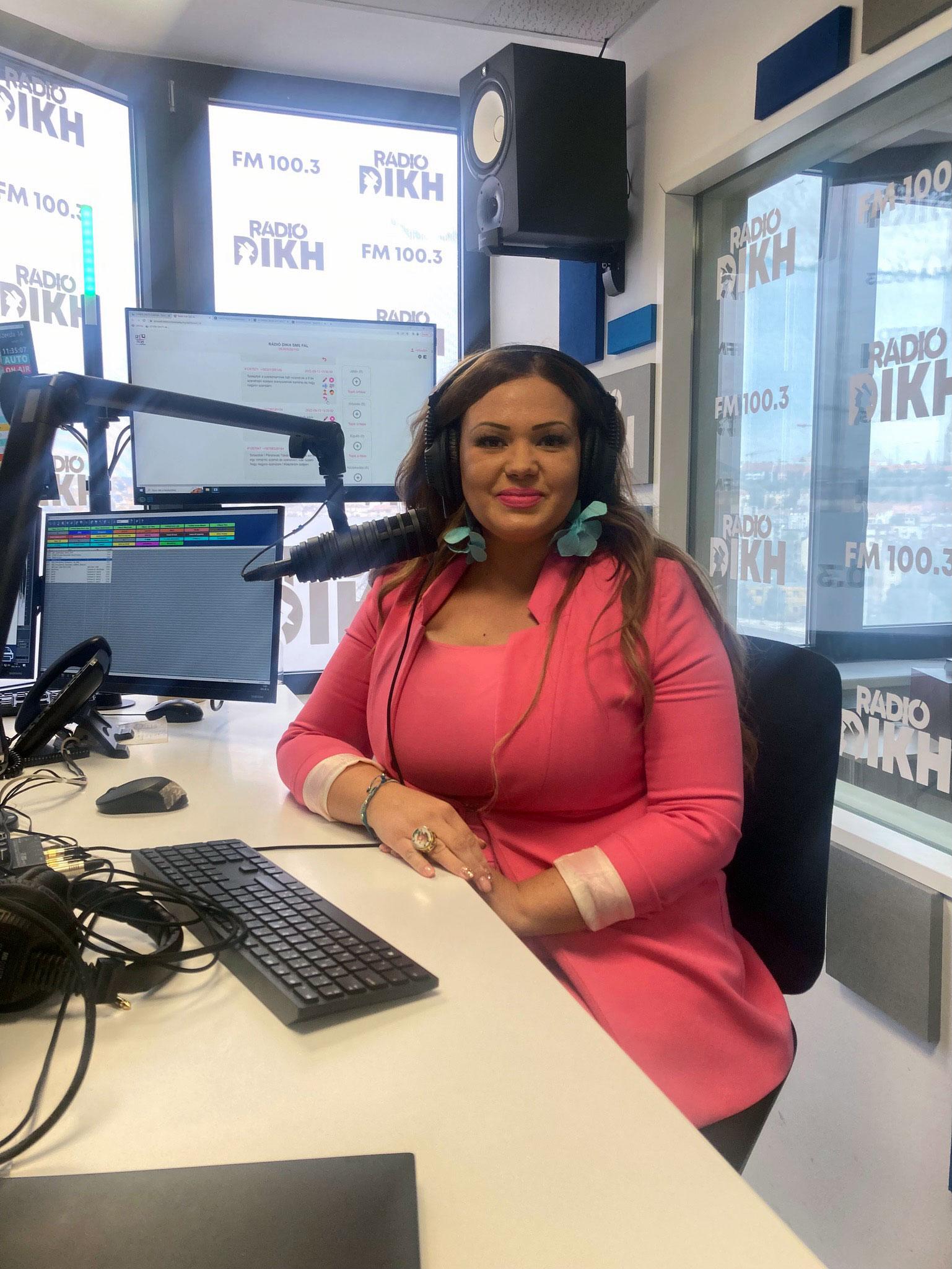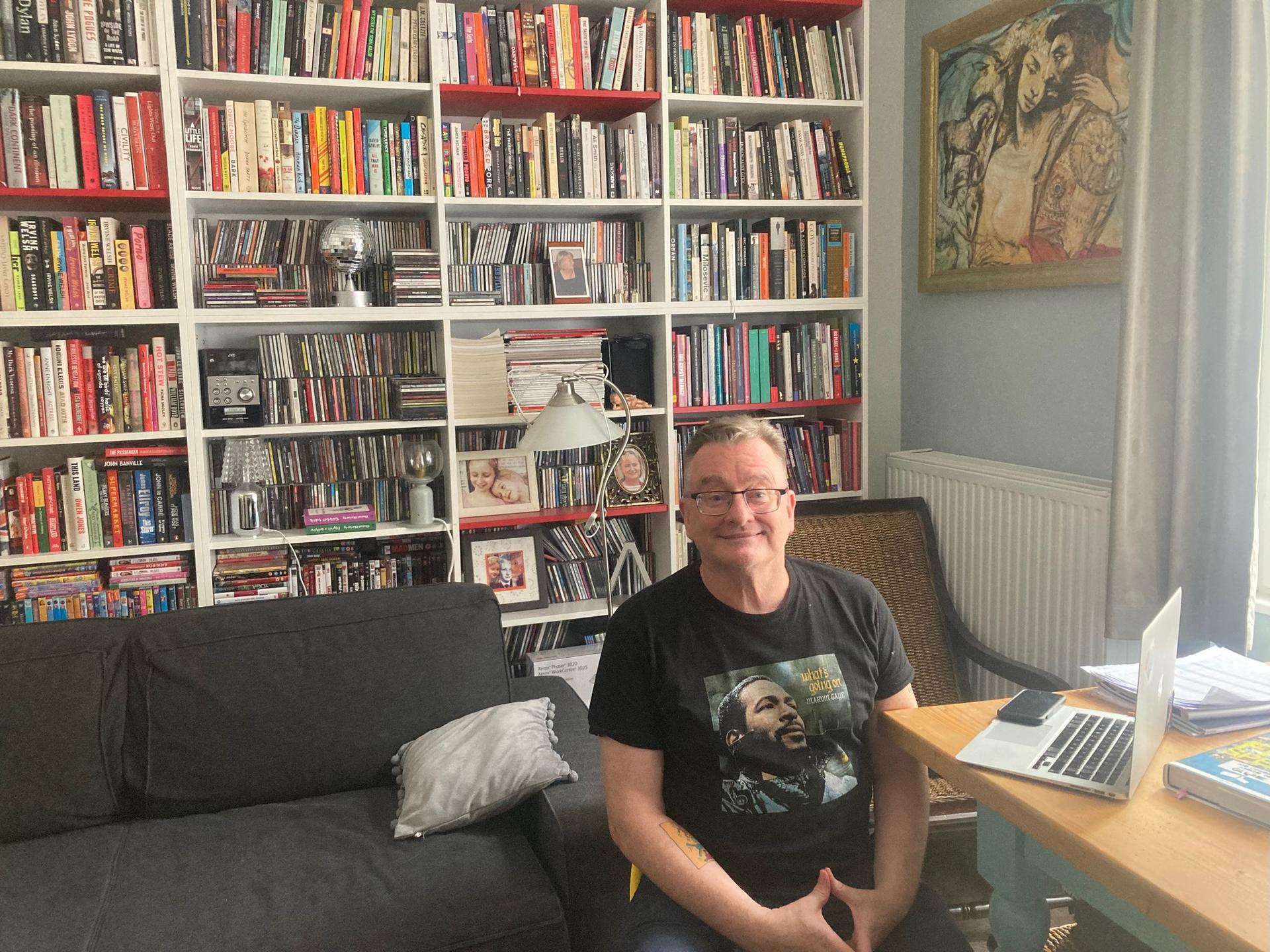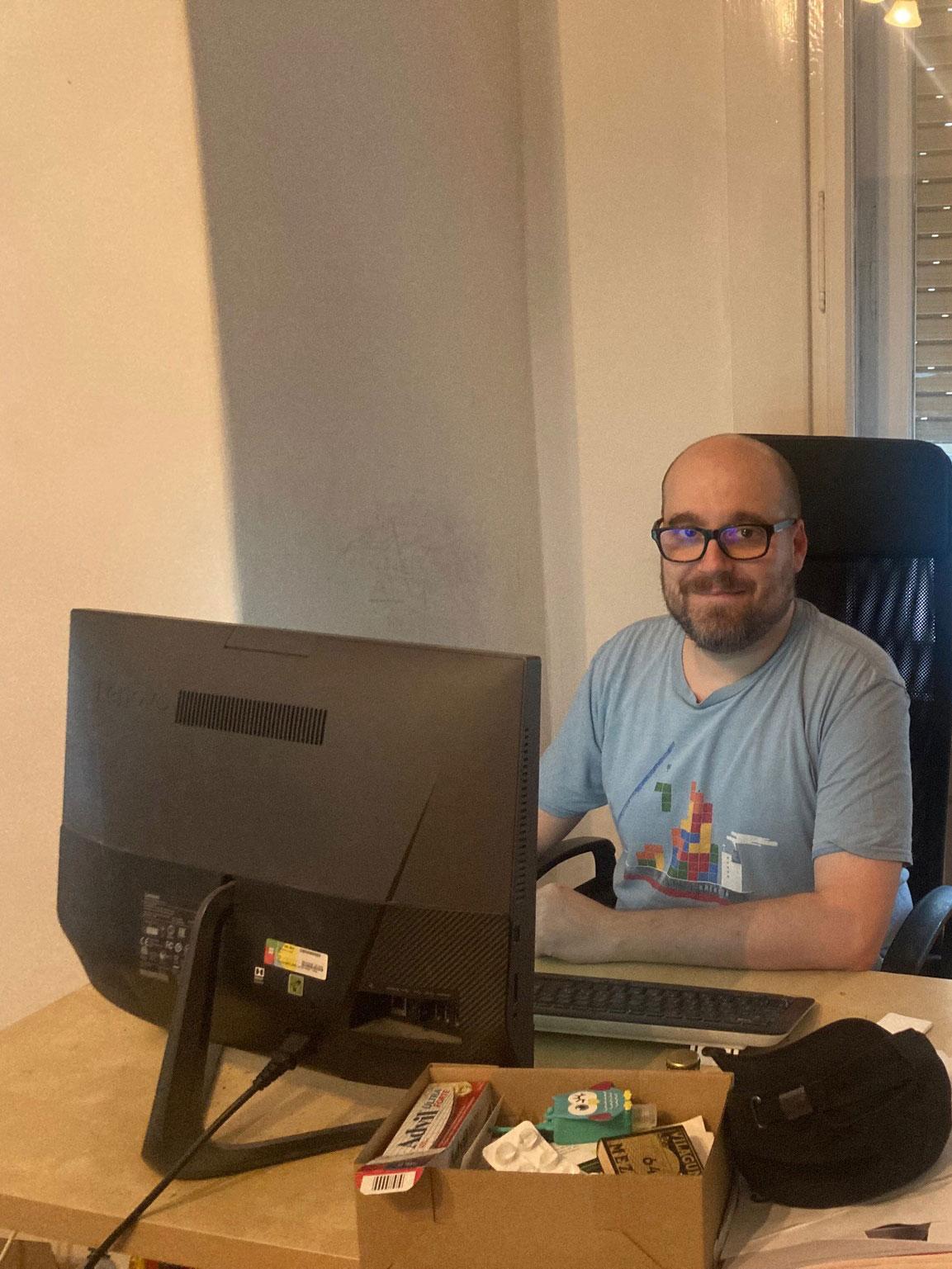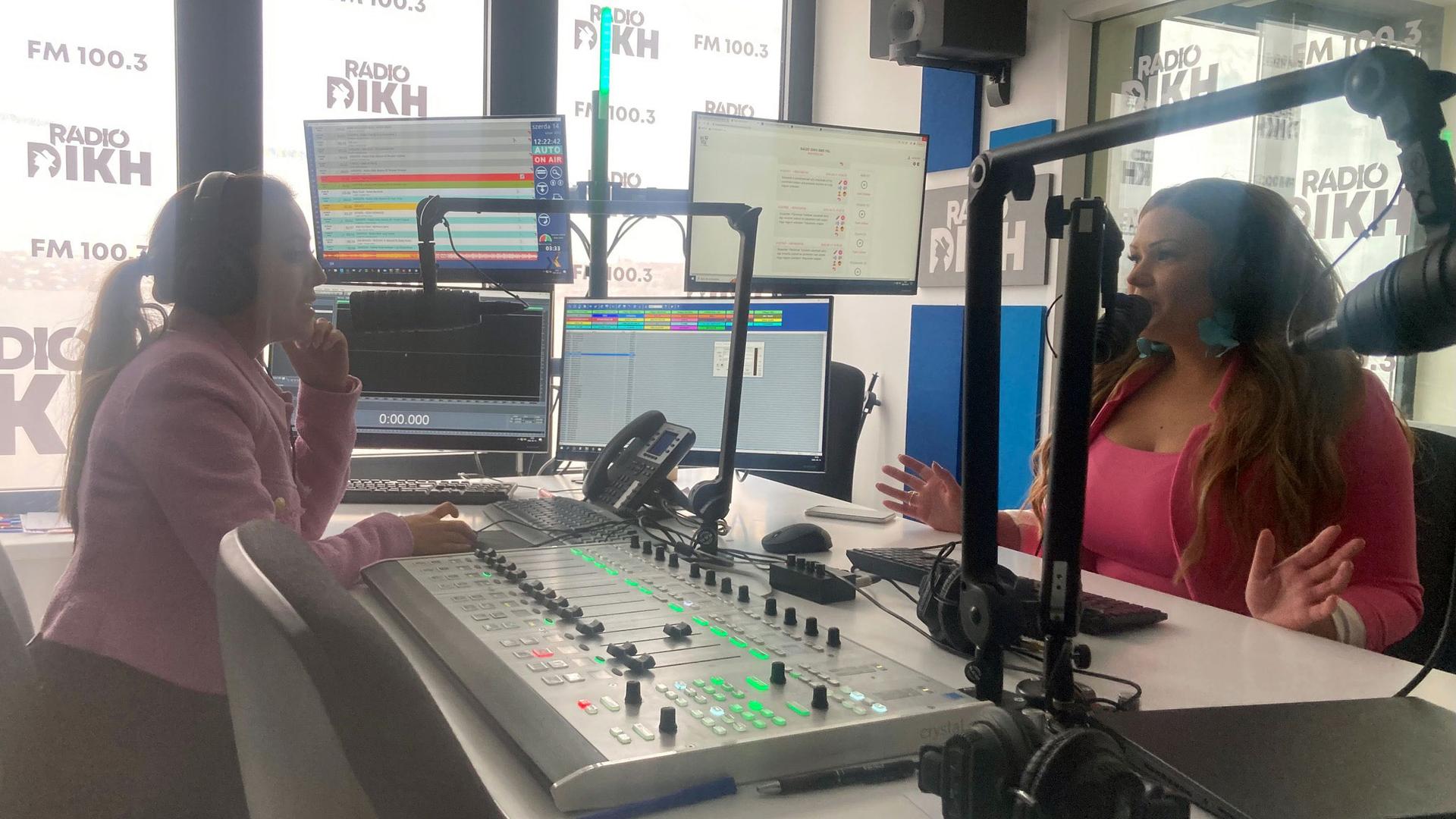A new Roma radio station gets people talking about taboo issues in Hungary
Szandi Minzari knows she’s different from most Roma women in Hungary. The divorced, single mother is one of the leading broadcasters on Radio Dikh, a radio station in Budapest, whose presenters are all Roma.
The station began broadcasting in February 2022 with the aim of raising the profile of Hungary’s large Roma community, as well as upending some of the negative stereotypes that still exist about the group.
Last week, the European Parliament issued a statement saying that Hungary is no longer a fully functioning democracy. EU lawmakers laid out a long list of fundamental rights they believe are under threat, including the electoral system, judiciary independence and the protection of minorities.
The Roma are Hungary’s largest ethnic minority.
Minzari’s weekly radio show “Zsa Shej,” which means “Let’s go, girls,” in the Romani language, tries to cover subjects that are usually taboo in the Roma community, including those pertaining to relationships, menstruation and family issues.
“We like to cover topics that usually don’t get talked about around the kitchen table,” Minzari said.

Her co-host, Melanie Nagy, is also a divorcee and a single mother. Divorce is really uncommon among Roma, Minzari said, adding that many Roma women often stay in abusive relationships out of fear of poverty or shame.
One of Minzari’s friends, who was recently divorced, has now been ostracized by her family, she said.
“They [her family] said that you brought a big shame on us, on our family, on our names. So, you are on your own.”
Listeners of Radio Dikh, which is the Romani word “to see,” are both Roma and non-Roma. The station’s motto is “about Roma, not just for Roma.” The shows feature music and literature by Roma artists.
Minzari’s father comes from a long line of traditional musicians, although he doesn’t play an instrument. He runs his own construction company, employing mainly Roma workers.
Minzari describes herself as half-Roma, half-Hungarian because her mother is not Roma. When her parents first got together more than 35 years ago, there was a lot of hand wringing in her father’s family, Minzari said.
“My grandmother was putting wet towels on her head, like doing this big show because she wanted my father to stay inside the Roma community, to marry a ‘gypsy’ girl who can cook, who can bear children,” Minzari laughed.
Minzari is proud of her Roma roots, but she still remembers being singled out in school by her teacher and labeled cigány, meaning “gypsy.”
That was 23 years ago. Segregation of Roma children continues in Hungarian schools to this day.
In 2020, the country’s Supreme Court ordered an elementary school in Gyongyospata to pay compensation to Roma families for “unlawful segregation and substandard education.” Before the ruling, Hungarian Prime Minister Viktor Orbán suggested the school should refuse to pay out any money if ordered. Instead, he suggested it was the Roma children who had created a threatening environment in the school, which led non-Roma parents to take their children to a school in a neighboring town.
Bernard Rorke, the advocacy and research manager with the European Roma Rights Center in Budapest, has been campaigning against school segregation in Hungary since 2000.
Conditions for Roma have deteriorated since Viktor Orbán returned to power in 2010, Rorke said.
“The European Commission initiated infringement proceedings against Hungary for school segregation more than five years ago and more recent EU reports have noted that segregation in Hungarian schools has actually worsened,” he said.
“But the Orbán government has done nothing to address it.”

But not everyone agrees.
István Forgács, who is Roma and a regular commentator on Hungarian TV, believes that segregation in schools comes down to demographics.
“The Roma have more children than non-Roma” he said, “and the high number of Roma kids in certain schools is mostly because of this difference.”
Forgács said he believes Orbán has been doing a good job as prime minister over the last 12 years and has “helped the Roma socially integrate.”
“This government has helped people to have more income, both Roma and non-Roma. It has helped Roma to have more jobs and also to get closer to the non-Roma community,” Forgács said.
But Rorke, with the European Roma Rights Center, said unemployment remains a big issue among Roma in Hungary, and those who have a job are often paid far less than the minimum wage.
If the government’s Roma strategy is so effective, he said, why are there worsening levels of poverty? He said that many Roma are still living without access to clean water and sanitation.
During the migrant crisis in 2015, when over 1 million people fled to Europe, mainly from Syria and Afghanistan, Hungary refused most asylum requests. Hungary’s Justice Minister László Trócsányi said the country was unable to take in migrants because it already had its hands full dealing with its own Roma population. A razor wire was erected along borders with Croatia and Serbia to keep migrants out.
Roma commentator Forgács said he wasn’t offended by the remarks and that the Orbán government just wanted to point out that it has its own challenges providing for its own people.
Orbán’s name is rarely heard on Radio Dikh — Minzari said she shies away from politics. In Hungary, the majority of the country’s news media is government-controlled or owned by Orbán allies.

Péter Erdélyi, director of the independent news outlet 444.hu in Budapest said he is not surprised to hear Radio Dikh does not discuss Orbán’s right-wing Fidesz party-led government.
“There are lots of very difficult issues that people need to talk about in Hungarian media, but they won’t because they know that, as soon as there is even a remote whiff of criticism of government policies, there could be all sorts of problems around funding and licenses and whatnot. There’s an understanding that you are allowed to keep doing what you do, if you do not engage in politics,” Erdélyi said.
Minzari said the only criticism she has received about her show, so far, has come from members of the Roma community who disagree with her views. Non-Roma listeners have been hugely supportive, she said.
And even if people do complain, at least we’ve got them talking, Minzari said.
“That’s all a radio show can ask for.”
Related: What does Hungary’s crackdown on free media mean for the rest of the world?
